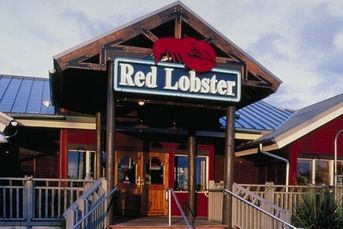Arbitrators: B-Ds kept brokers in the dark on private deals
From giants such as Citigroup Inc. to small broker-dealers such as Pacific West Securities Inc., brokerage firms have kept their representatives in the dark about problematic details in investments.
From giants such as Citigroup Inc. to small broker-dealers such as Pacific West Securities Inc., brokerage firms have kept their representatives in the dark about problematic details in investments such as hedge funds, private placements and real estate deals, according to recent arbitration decisions.
Arbitration awards and actions by state securities regulators have hit firms’ bottom lines in the form of substantial penalties and have eroded good will and loyalty among brokers.
Last month, for example, a Financial Industry Regulatory Authority Inc. arbitration panel decided that Citigroup Global Markets Inc. was liable for “negligent management” of the sale of two hedge funds, ordering it to pay the client $1.82 million in damages.
Citigroup denounced the arbitration panel’s decision.
“This outcome is inconsistent with other decisions and we are disappointed that these claims were not dismissed,” said Alex Samuelson, a spokesman for Citigroup.
The case involved Citigroup’s former brokerage unit, Smith Barney, whose brokers sold more than $2 billion of the MAT and ASTA hedge funds as low-risk, fixed-in-come alternative investments, beginning in 2002. Ultimately, the series of funds lost between 30% and 100% of their value.
The arbitrators’ award, issued Aug. 3, cited “negligent supervision” at Citigroup, a charge that is almost unheard of in such a decision and an indication of the severity of the problem at Citigroup, said attorney Robert Pearce, who represented the client in the claim.
“There are tons of conflicts in these products and how they’re offered,” he said.
“The financial advisers are the tools to sell these products, and they don’t get the full scoop on who’s managing them. The blow-up was due to management, who then passed it along to the advisers,” Mr. Pearce said.
“The best advisers at Smith Barney sold MAT and ASTA to their best clients and wound up feeling totally betrayed by Smith Barney,” said industry recruiter Danny Sarch. He said he knew one broker who left the firm due to losses in the products.
“In terms of a loss of faith in the firm, this is as big as anything,” Mr. Sarch said.
That loss of faith can occur at smaller, independent firms, too, especially when reps rely on a distant home office’s approval for a deal.
In July, a Finra arbitration decision pointed to the lack of information that independent broker-dealer Pacific West gave to a rep about a real estate deal as one of the key facts in making a $593,000 award, plus interest, for an investment involving a tenant-in-common exchange that soured.
The panel found it “reasonable” that the broker, Stephen Graef, and his client wouldn’t have invested in the deal “had Graef, for example, known what Pacific West’s headquarters knew,” according to the arbitration award.
Two key facts were “that Rob Hannah [the deal’s promoter] had a bad credit history and was being sued for securities fraud,” the award said.
Another detail involved the leasing of the property’s vacant ground floor, the award said. If it was vacant after two years, the investor would be on the hook.
“Graef testified that Hannah’s payment issues would be something he’d want to know,” the arbitrators wrote.
“Unfortunately, what Pacific West knew, Graef didn’t, as Pacific West did not appear to convey to its representatives the “red flag’ which it uncovered in its due-diligence efforts. Indeed, there is no evidence that Pacific West passed on any evaluation of the degree of risk it saw in each TIC it reviewed,” the arbitrators wrote.
Pacific West, based in Renton, Wash., has 320 affiliated reps and advisers, and produced $41 million in gross revenue last year.
“I disagree with the conclusion” of the arbitration panel, said Shanon Ford, the brokerage firm’s president. “Both the broker and the client knew exactly what was going on and documents told of risks.”
Mr. Ford added that the arbitrators dismissed four other claims involving real estate sales to the same client.
Disclosure of risks, however, isn’t the same thing as the disclosure of facts, said Irwin Stein, the lawyer who won the award against Pacific West. With the fallout from the market decline, brokers are more willing than ever to testify against their firms in arbitration hearings, he said.
“Sloppy due diligence is a career killer for the rep,” Mr. Stein said. “I see reps who get on the stand and testify that if they had known the truth about the product, they wouldn’t have sold it.”
E-mail Bruce Kelly at [email protected].
Learn more about reprints and licensing for this article.








